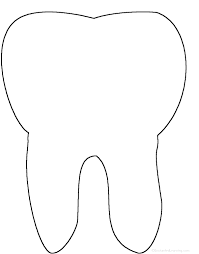tooth
英 [tuːθ]
美 [tuθ]
- n. 牙齿
- vt. 给……装齿
- vi. 啮合
- n. (Tooth)人名;(英)图思
CET4 TEM4 考 研 CET6
tooth 牙齿来自古英语 toth(plural teth,),来自 Proto-Germanic*tan-thuz,来自 PIE*dent,牙齿,来自*ed,吃, 咬,词源同 eat,edible,-ent,现在分词格。
- tooth
- tooth: [OE] Etymologically, a tooth is an ‘eater’. Its ultimate source is the prehistoric Indo- European base *ed- ‘eat’, which also lies behind English eat and edible. From this was formed the noun *dont-, *dent- ‘tooth’, whose descendants include Latin dēns ‘tooth’ (source of English dentist, indent, trident [16], etc), Greek odón ‘tooth’, (source of English odontology [19]), Welsh dant ‘tooth’, and prehistoric Germanic *tanthuz. This evolved into German zahn, Dutch, Swedish, and Danish tand, and English tooth. A variant of *tanthuz may lie behind English tusk.
=> dentist, eat, edible, indent, odontology, trident, tusk - tooth (n.)
- Old English toð (plural teð), from Proto-Germanic *tan-thuz (cognates: Old Saxon, Danish, Swedish, Dutch tand, Old Norse tönn, Old Frisian toth, Old High German zand, German Zahn, Gothic tunþus), from PIE *dent- "tooth" (cognates: Sanskrit danta, Greek odontos, Latin dens, Lithuanian dantis, Old Irish det, Welsh dent). Plural form teeth is an instance of i-mutation.
Application to tooth-like parts of other objects (saws, combs, etc.) first recorded 1520s. Tooth and nail as weapons is from 1530s. The tooth-fairy is attested from 1964.
- 1. A dentist may decide to extract the tooth to prevent recurrent trouble.
- 牙医可能会决定拔掉那颗牙,以免反复发作。
来自柯林斯例句
- 2. When not removed, plaque causes tooth decay and gum disease.
- 牙斑如果不清除就会导致牙齿蛀蚀和牙龈疾病。
来自柯林斯例句
- 3. He fought tooth and nail to keep his job.
- 他竭尽全力保住自己的工作。
来自柯林斯例句
- 4. I got an abscess so he took the tooth out.
- 我牙龈脓肿,所以他就把那颗牙拔掉了。
来自柯林斯例句
- 5. We went over that area with a fine-tooth comb.
- 我们对那个地区进行了彻底的搜查。
来自柯林斯例句
[ tooth 造句 ]
